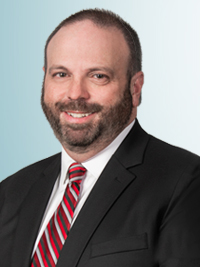By Charles Dean Smith, Jr., CPA
Franchisees need to secure financing for a variety of reasons. However, the process can be intimidating — especially for those who aren’t eager to assume additional debt or might not qualify for a traditional business loan.
One innovative financing method is the Rollover for Business Startups (ROBS) 401(k) plan. This financing method is gaining popularity among franchisees for good reason.
One lender sponsored a study that showed 67 percent of companies who used ROBS were still in business after five years compared to the standard rate of 30 percent.
This article from the franchise team at PBMares will outline the basics of ROBS 401k Financing, benefits and challenges of the method, and what franchisees should consider before taking the first step.
What Is ROBS 401(k) Financing?
ROBS 401(k) financing enables entrepreneurs to access funds from existing retirement accounts — like a 401(k) or non-Roth IRA — and use those funds to start, acquire, or grow a business venture, like a franchise.
ROBS have been around for decades. They are not a tax loophole or an aggressive tax strategy. In 1974, Congress wanted to provide another option for American workers to grow retirement assets and passed the Employee Retirement Income Securities Act (ERISA). ERISA works in conjunction with the Internal Revenue Code to allow a 401(k) plan to invest in Qualified Employer Securities and enables an individual to fund a business.
ROBS financing is not a withdrawal from or a loan against the existing retirement plan — so there are no early withdrawal fees or tax liabilities involved.
Instead, the process involves creating a C Corporation and establishing a new 401(k) plan for the business. The existing retirement funds roll over into the new plan and are used to invest in the business venture in the form of stock purchases.
“ROBS are becoming a very popular funding option for new franchisees as many investors are deciding to leave a corporate job and start their own new business. I have helped several new franchisees during the past year complete these ROBS transactions and make sure they structure the retirement plan transfer to meet all of the IRS requirements for a tax-free investment and rollover.”
Pros and Cons of ROBS 401K Financing for Franchisees
ROBS 401K Benefits for Franchisees
- No debt accumulation. Because a ROBS does not require borrowing money, it is not a traditional loan and involves no credit score requirements and no need to make loan repayments. Plus, no debt on your balance sheet helps accelerate the timeline to break even as well as ongoing profitability.
- Faster funding. ROBS has fewer eligibility requirements and is typically a quicker route to securing the funds you need to accelerate a launch or expansion process.
- Flexibility to combine financing options. If the balance in your retirement account does not’ cover your financial needs, ROBS can be used in conjunction with other financing options, like an SBA loan, to increase your buying power.
- More breathing room. Because there are no repayment obligations, there is no strain on cash flow. Plus, you maintain complete ownership and control of the franchise.
- Protection of personal credit. Owning your own business often requires leveraging personal credit. Because ROBS uses retirement savings instead, you safeguard your credit score and your personal assets.
- ROBS as a recruitment tool. When you use ROBS, you establish a retirement plan for the business, which is attractive to potential employees.
- Tax benefits. When you use ROBS, you must establish a C-corp and profits under a C-corp are currently taxed at a flat rate of 21 percent.
Cons of ROBS 401K for Franchisees
- Compliance requirements. Establishing a ROBS plan will involve navigating complex legal and regulatory requirements (e.g., prohibited transactions under ERISA, annual reports for the retirement plan, Form 5500, etc.) Noncompliance can result in penalties or adverse tax consequences. Consider working with a team of experienced professionals to mitigate compliance risks.
- Tax complexity. If the business undergoes an IRS audit, ROBS makes the audit process more complex because the IRS will review the retirement plan along with the business operations.
- Risk to retirement savings. If the franchise fails, retirement savings are on the line. Be sure to carefully assess the viability and potential returns of your many franchise opportunities before committing retirement funds.
- C-corps often require significant admin work. Because ROBS requires private stock purchase, the only entity that works with this structure is a C-corp. C-corps can sometimes require more paperwork, fees, and ongoing administration than sole proprietorships or LLCs.
- Less access to retirement funds. Franchisees may face penalties or taxes if they withdraw funds from the ROBS plan prematurely. Be sure to create a contingency plan and maintain an emergency personal fund for unexpected expenses or emergencies.
Learn More
ROBS is high-risk, high-reward and can be an excellent option for business funding under the right conditions. However, it isn’t for everyone.
Assess your unique situation and minimize financial risks by using a trusted provider to review, set up, and manage your ROBS arrangement.
The franchise team at PBMares can help. With many years of experience serving franchises in various industries, our dedicated franchise team offers comprehensive accounting, management, and business advisory services that can change the trajectory for your business.
Contact us today to discuss whether ROBS is right for your franchise funding needs.





